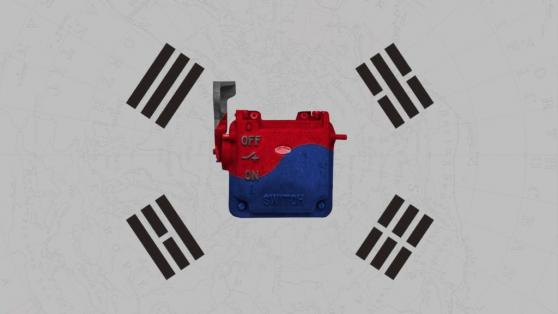- South Korea has joined the list of countries threatening cryptocurrencies.
- Eun Sung-soo, head of the country’s Financial Services Commission, hinted at the direction of the South Korean government.
- This would add to the current woes of Bitcoin and digital assets.
- South Korea may lose its spot as the third-largest crypto country in terms of transactions.
South Korea, the third-highest cryptocurrency trading country, may take another turn as the country’s top regulator says it plans to shut cryptocurrency exchanges by September. Eun Sung-soo, head of the country’s FSC (Financial Services Commission), made this known at a meeting of the National Assembly policy committee.
This comes as a shock because many believed that South Korea’s positive approach to crypto contributed to China making a U-turn and backing blockchain technology after issuing threats against it. Asia is a major driver of cryptocurrency with its high-speed internet and young population pushing the crypto wave.
The Reason Behind The Decision
Though many are speculating that the plans are linked to the government wanting to save traditional financial institutions, officials insist that it’s just a regulatory decision and nothing more.
On the 22nd of April, Eun Sung-soo, chairman of the main regulatory agency in South Korea, stated in a National Assembly policy meeting that cryptocurrency exchanges are not complying with the law. As a result, the FSC plans to punish the country’s crypto exchanges.
South Korea had earlier passed laws that require crypto exchanges to register as virtual asset service providers (VASPs). The Anti-Money-Laundering Law and the Financial Transaction Reporting Act, which was amended last year, require all crypto exchange platforms to be officially registered and submit VASP applications.
Since then, the agency has not received any VASP applications and is warning that all the platforms will be shut down by September should the status quo continue.
Many believe that this new policy would remove small exchanges in the country as the prerequisite for an application for VASP status is to have a partnership with a local bank. So far, only the top four exchanges in the country have such partnerships. Getting an official partnership may prove to be difficult for smaller exchanges, so they can’t submit VASP applications.
Eun Sung-soo stressed that the state cannot effectively protect people against cryptos scammers, but it would try to regulate the sector.
On the Flipside
- South Korea’s threat may not be fulfilled as the government may rethink because crypto is a booming sector.
- Already, politicians in the country are looking for ways to protect crypto investors as tax season looms.
- South Korea is preparing to impose a 20% tax on income from crypto transactions starting in 2022.
What’s Next For Bitcoin And Other Digital Assets?
There is only one way this will end for digital assets should South Korea ban crypto exchanges, and it’s not in any way positive. An official announcement of the ban will affect the global price of Bitcoin. South Korea is the world’s third-largest crypto market, and such news would be disastrous for cryptocurrencies.
In 2018, South Korea’s Minister of Justice equated cryptocurrency trading with gambling, stating that the Asian nation was preparing legislation that would eventually ban cryptocurrencies. Following that announcement, the price of Bitcoin plunged more than 10%, in what is referred to as the “Park Sang-ki disaster.” A similar move now would surely have a major negative effect on crypto.
EMAIL NEWSLETTER
Join to get the flipside of crypto
Upgrade your inbox and get our DailyCoin editors’ picks 1x a week delivered straight to your inbox.
[contact-form-7] You can always unsubscribe with just 1 click.
